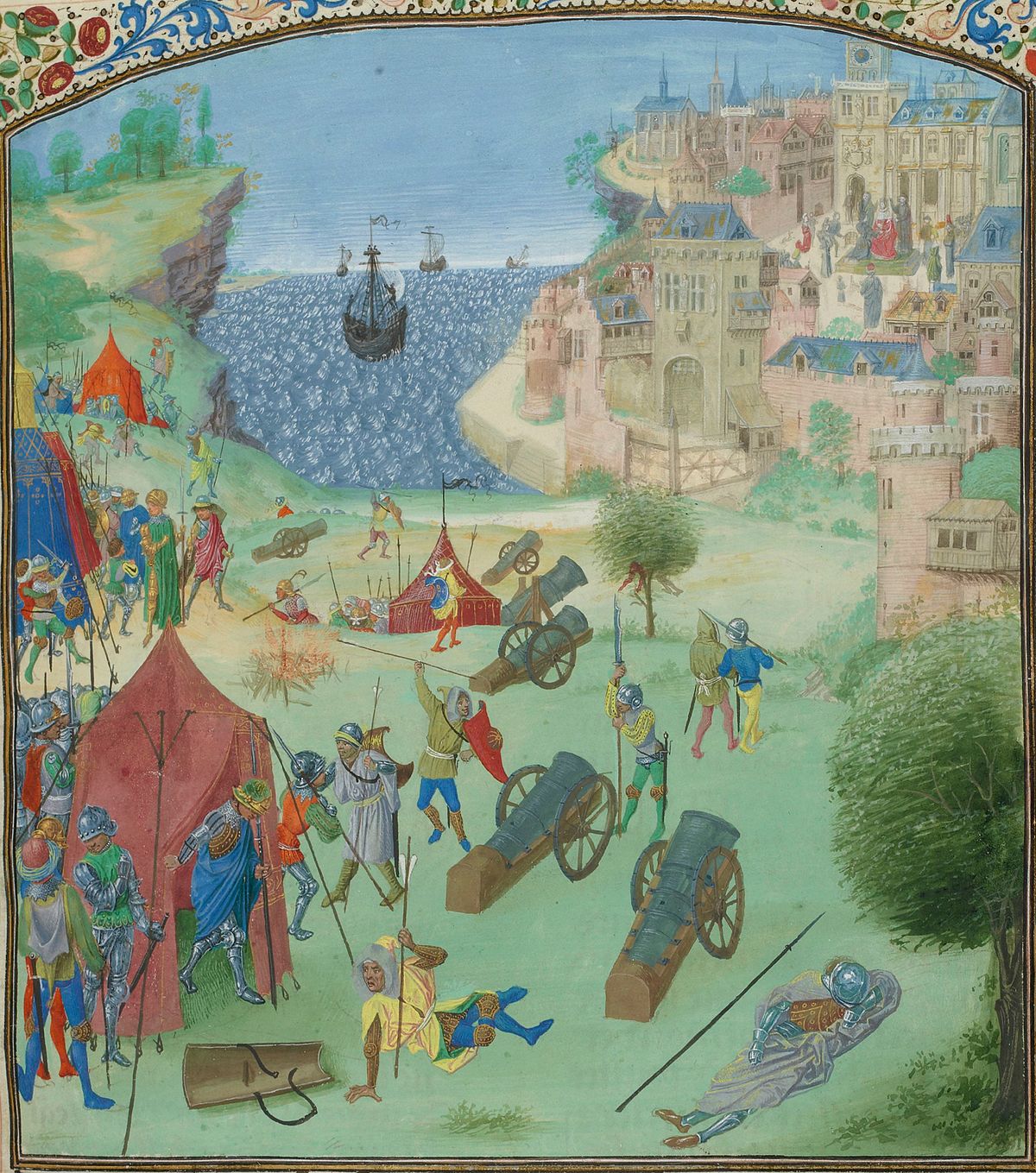
Portuguese Interregnum
PortugalThe 1383–1385 Portuguese interregnum was a civil war in Portuguese history during which no crowned king of Portugal reigned. The interregnum began when King Ferdinand I died without a male heir and ended when King John I was crowned in 1385 after his victory during the Battle of Aljubarrota.
The Portuguese interpret the era as their earliest national resistance movement to counter Castilian intervention, and Robert Durand considers it as the "great revealer of national consciousness". The bourgeoisie and the nobility worked together to establish the Aviz dynasty, a branch of the Portuguese House of Burgundy, securely on an independent throne. That contrasted with the lengthy civil wars in France (Hundred Years' War) and England (War of the Roses), which had aristocratic factions fighting powerfully against a centralised monarchy. It is usually known in Portugal as the 1383–1385 Crisis (Crise de 1383–1385).
